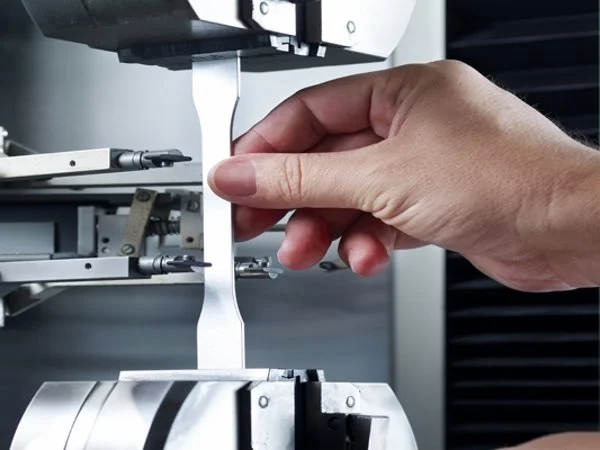Cast Iron Hardness Testing
The process of cast iron hardness testing is a critical component in ensuring that materials used within the oil and gas sector meet stringent quality and reliability standards. Cast iron, composed primarily of iron and carbon, is widely used due to its excellent mechanical properties and resistance to wear and tear under high-stress conditions. Within this context, hardness testing provides valuable insights into the material's strength and durability.
Hardness tests are typically conducted using specialized equipment such as Brinell or Rockwell testers, which apply a defined load over a specific area of the sample surface. For cast iron specimens, these tests yield results that indicate how resistant the metal is to indentation by a hard steel ball (Brinell) or cone (Rockwell). The hardness values obtained from these tests are crucial for quality control and assurance in various stages of product development.
The significance of cast iron hardness testing extends beyond mere compliance with industry standards. It plays a pivotal role in optimizing material selection, ensuring component longevity, and enhancing operational efficiency within oil and gas operations. For instance, understanding the hardness characteristics helps engineers design components that can withstand extreme pressures and temperatures without failure.
Furthermore, this type of testing supports predictive maintenance strategies by identifying potential weak points early on. By regularly monitoring hardness levels throughout the lifecycle of equipment, operators can proactively address any issues before they escalate into costly downtime or accidents. This proactive approach not only enhances safety but also contributes significantly to overall operational reliability.
It is worth noting that while cast iron offers excellent wear resistance and strength, it does have limitations when exposed to certain environmental factors like sulfuric acid or specific temperatures above 500°C. Thus, understanding these parameters through thorough hardness testing ensures that materials are appropriately chosen for their intended applications.
In summary, cast iron hardness testing serves as an essential tool for maintaining the integrity and performance of critical components used in oil and gas infrastructure. Its ability to provide precise measurements of material properties makes it indispensable for quality assurance programs across this sector.
Industry Applications
Casting and Foundry Industries: Ensuring that cast iron parts meet required hardness levels enhances their durability in demanding applications like engine blocks, cylinder liners, and pump casings.
Automotive & Heavy Equipment Manufacturing: Cast iron components such as brake drums, gearboxes, and transmission cases benefit greatly from accurate hardness testing to ensure reliability under various conditions.
Construction & Infrastructure Projects: In sectors where strength and corrosion resistance are paramount, cast iron pipes and fittings undergo rigorous hardness assessments before deployment.
The versatility of cast iron makes it indispensable across multiple industries. Its robust nature ensures longevity even in harsh environments, making it a preferred choice for manufacturers looking to optimize their product offerings.
Eurolab Advantages
Expertise & Experience: Our team consists of seasoned professionals with extensive knowledge in metallurgical and mechanical testing. They stay updated on the latest advancements in the field, ensuring that our services remain at the forefront.
State-of-the-Art Facilities: Equipped with cutting-edge equipment, including advanced Brinell and Rockwell testers, we offer precise and reliable hardness measurements every time.
At Eurolab, we pride ourselves on providing unparalleled service backed by years of experience. Our commitment to excellence ensures that our clients receive accurate results tailored specifically to their needs.
Quality and Reliability Assurance
Compliance with International Standards: All tests adhere strictly to relevant ISO, ASTM, and EN standards ensuring consistency and accuracy.
Precision Instruments & Methodologies: Leveraging sophisticated technology guarantees that each hardness measurement is reliable and repeatable.
Robust Reporting & Documentation: Comprehensive reports accompany every test result, providing detailed insights into the properties of cast iron samples.
Our robust quality assurance processes are designed to meet or exceed industry expectations. By adhering meticulously to these protocols, we ensure that our clients receive trustworthy and actionable data.





